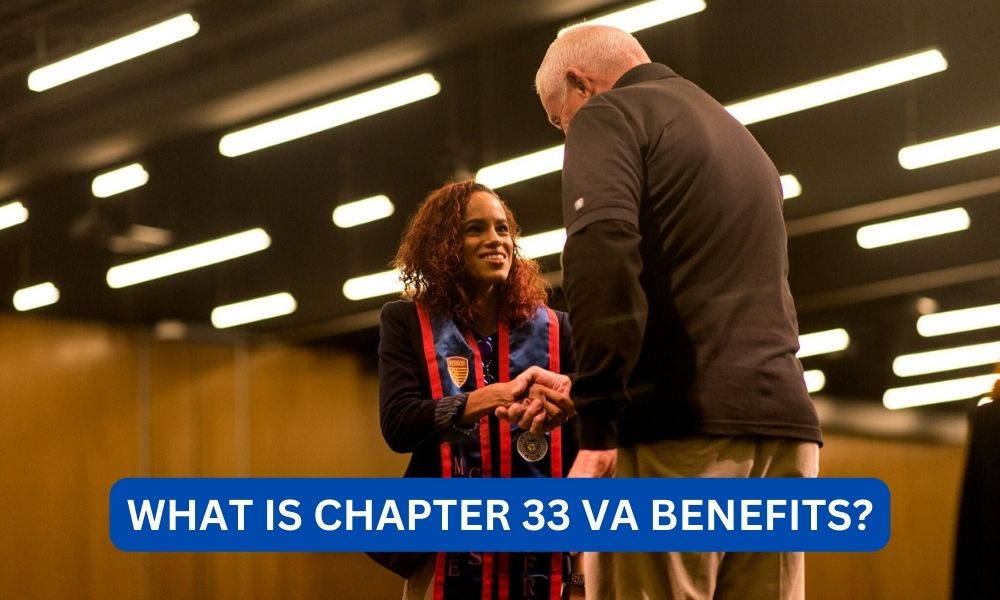Chapter 33 VA benefits, also known as the Post-9/11 GI Bill, is a comprehensive education and training program for veterans and their families. It was created in 2008 as a way to provide financial support for those who have served in the military after the September 11th attacks. This program has helped millions of veterans and their families achieve their educational and career goals, making it an essential part of the VA’s benefits package.
In this article, we will delve into the details of what Chapter 33 VA benefits are, who is eligible for them, and how they can be used. We will also explore the impact of these benefits on veterans and their families, as well as the challenges and criticisms surrounding the program. By the end of this article, you will have a thorough understanding of Chapter 33 VA benefits and their significance in the lives of our nation’s veterans.
Contents
What are Chapter 33 VA Benefits?
Chapter 33 VA benefits are a set of educational and training benefits provided by the Department of Veterans Affairs (VA) to eligible veterans and their families. These benefits cover a wide range of educational programs, including undergraduate and graduate degrees, vocational and technical training, and on-the-job training. They also include financial assistance for housing, books, and supplies.
Read:A medicare supplement policy must not contain benefits whichThe Post-9/11 GI Bill is the most recent version of the GI Bill, which was first introduced in 1944 to help World War II veterans transition back to civilian life. The Post-9/11 GI Bill was created in response to the changing needs of veterans in the 21st century, particularly those who have served in the post-9/11 era. It is considered the most comprehensive education benefit program for veterans since the original GI Bill.
Eligibility for Chapter 33 VA Benefits
In order to be eligible for Chapter 33 VA benefits, you must have served at least 90 days of active duty service after September 10, 2001, or have been honorably discharged from active duty for a service-connected disability after serving 30 continuous days after September 10, 2001. Additionally, you must have received an honorable discharge from the military to be eligible for these benefits.
Spouses and dependents of eligible veterans may also be eligible for Chapter 33 VA benefits under certain circumstances. This includes spouses of veterans who have died in the line of duty or as a result of a service-connected disability, as well as dependents of veterans who are permanently and totally disabled due to a service-connected disability.
Read:How to restart suspended social security benefits?It is important to note that eligibility for Chapter 33 VA benefits does not guarantee approval for the program. Applicants must also meet the requirements of the specific educational program they wish to pursue, such as admission criteria and academic progress standards.
How to Apply for Chapter 33 VA Benefits
The application process for Chapter 33 VA benefits can be completed online through the VA’s website or by submitting a paper application. The online application is recommended as it is faster and more convenient. To apply, you will need to provide your personal and military information, as well as the educational program you wish to pursue.
Once your application is submitted, it will be reviewed by the VA to determine your eligibility. If approved, you will receive a Certificate of Eligibility (COE) which outlines the benefits you are entitled to. This COE will also be needed when enrolling in an educational program and when requesting payments from the VA.
How Chapter 33 VA Benefits Can Be Used
Chapter 33 VA benefits can be used for a variety of educational programs, including traditional college degrees, vocational and technical training, and apprenticeships. These benefits can also be used for distance learning programs, such as online courses, as long as they are offered by an accredited institution.
Read:When does the extra snap benefits end in massachusetts?One of the unique features of Chapter 33 VA benefits is the ability to transfer them to a spouse or dependent. This allows veterans to share their benefits with their family members, providing them with the opportunity to pursue their own educational goals. However, there are certain eligibility requirements and restrictions for transferring benefits, so it is important to carefully consider this option before making a decision.
Chapter 33 VA benefits cover tuition and fees up to the highest in-state public school undergraduate tuition rate, as well as a monthly housing allowance and an annual stipend for books and supplies. The amount of these benefits is determined by the length of your active duty service and the type of educational program you are pursuing.
For example, if you have served at least 36 months of active duty, you are entitled to 100% of the tuition and fees, as well as the maximum housing allowance and stipend for books and supplies. If you have served less than 36 months, the percentage of benefits you are entitled to will be prorated accordingly.
The Impact of Chapter 33 VA Benefits
Since its inception, Chapter 33 VA benefits have had a significant impact on the lives of veterans and their families. These benefits have helped millions of veterans achieve their educational and career goals, providing them with the necessary resources and support to succeed in civilian life.
One of the main benefits of Chapter 33 VA benefits is the financial assistance it provides. Many veterans face financial challenges when transitioning from military to civilian life, and these benefits help alleviate some of the financial burden. By covering tuition and fees, as well as providing a housing allowance and stipend for books and supplies, veterans are able to focus on their education without worrying about the cost.
Chapter 33 VA benefits also have a positive impact on the economy. By investing in the education and training of veterans, the program helps create a skilled and educated workforce. This not only benefits the individual veterans, but also the communities and industries they are a part of.
Furthermore, Chapter 33 VA benefits have been shown to improve the overall well-being of veterans. Studies have found that veterans who use their GI Bill benefits have higher employment rates and earn higher salaries than those who do not. This not only improves their financial stability, but also their mental and emotional well-being.
Challenges and Criticisms
While Chapter 33 VA benefits have been largely successful in helping veterans, there are some challenges and criticisms surrounding the program. One of the main challenges is the high cost of education, particularly for private and out-of-state schools. The maximum tuition and fees covered by the program may not be enough to cover the full cost of attendance, leaving some veterans with a significant financial burden.
Another criticism is the complexity of the program and the application process. Many veterans have reported difficulties in understanding the eligibility requirements and navigating the application process. This can be especially challenging for those who are not familiar with the education system or have limited access to resources and support.
There have also been concerns about the effectiveness of the program in helping veterans find employment after graduation. While studies have shown that veterans who use their GI Bill benefits have higher employment rates, there are still challenges in translating military skills and experience into the civilian job market.
Conclusion:
Chapter 33 VA benefits are an essential part of the VA’s benefits package for veterans and their families. These benefits provide financial support for education and training, helping veterans achieve their educational and career goals. They have had a significant impact on the lives of veterans, improving their financial stability, well-being, and contribution to the economy.
While there are challenges and criticisms surrounding the program, it continues to be a valuable resource for veterans. As the needs of veterans continue to evolve, it is important for the VA to continuously review and improve the program to ensure it remains effective in supporting our nation’s heroes.
If you are a veteran or know someone who may be eligible for Chapter 33 VA benefits, we encourage you to explore this program and take advantage of the opportunities it provides. By investing in your education and training, you are not only investing in your own future, but also the future of our country.









